 Little Fyodor, October 2017 Little Fyodor, October 2017 by Little Fyodor Evan’s essay reminds me of an age-old debate. Is everything we do done for the sake of pleasuring the ego? Are even the likes of a Mother Theresa helping the poor just to feel good about themselves and maybe even superior to others? Evan wraps up by saying it would be disingenuous to deny that such ego satisfying motivations “were not somewhere on our minds” when creating and distributing Walls Of Genius, and of course if “somewhere” on the mind is the standard, that’s hard to dispute. I’ll fully cop to feeling warm and fuzzies over favorable reviews (and feeling a bit of the sting at the not so good ones!) as well as from recognition in the street and compliments from friends and in letters and nowadays online, etc. It’s even better when people tell me how my music affects them, how they relate to it, what it means to them. After all, the first thing that got me into wanting to do music in the first place was -- well wait, actually let’s back up. Cause I first started writing songs when I was around 12 or 13 or so. Bad shit. “Watch Out for That Buoy” about the family houseboat trip and an urgent plea for world peace and pollution solutions called “What Are We Gonna Do?” and a song about growing old called “Songs of the Past.” YECCCCH!!!! I wonder why I did all that? That’s hard to say! I guess perhaps some of the notoriety seeking of which Evan speaks may have played a role. I looked up to rock stars and wanted to be one. Guess it seemed “cool”? Sometime-WoG participant and artist Leo Goya liked to say there’s just a great appeal to creativity, and I think that’s part of it, too. The will to power of putting something into the world that’s something you did. Evolutionary psychologists may say it’s a sexual selection thing. It’s ultimately pretty mysterious, don’t you think? I mean, even if we’re trying to gratify our egos, why do it via art or music? Just cause we’re too short to be a basketball player? Or is there more to it? I don’t know if we’ll ever really know for sure…. 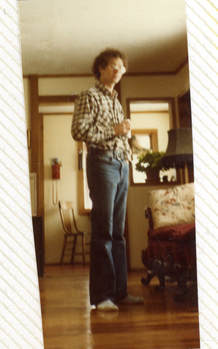 Little Fyodor, 1983 Little Fyodor, 1983 But I do recall feeling a desperate need near the end of my college years and the beginnings of being on my own to express a deep sense of loneliness and alienation and of generally feeling lost. And the sense I had that I wanted to tell the world what that was like and maybe somehow cosmically connect to people who felt the same way, like what The Who’s “Quadrophenia” was ostensibly about, and maybe parts of Alice Cooper. I picked my “pen” back up and started writing short stories and a novel (that I never finished) -- and songs; eventually I found the songs were more fun and a lot easier! This led to the start of the Little Fyodor repertoire that spanned several LP’s and CD’s. These sentiments only occasionally poked their head up in Walls Of Genius cassettes, but wanting to record these songs with Evan led directly to my joining the burgeoning project that became WoG, as both of us preferred to do WoG than record my songs. It was just FUN! The open endedness, the way anything was possible. We could goof around and make it art! Community and non-commercial music can be realized by having a regular live local band, but home recording opened up all sorts of possibilities that weren’t available with a regular setlist or while trying to get your sound out to a crowd in a bar. I remember the excitement I felt when WoG was first starting out, and again, I don’t know if I can explain it rightly, but it was just exciting to me. I remember telling Evan that I thought “I could contribute something,” as in to the world of experimental music. Whether that was a lot or a little, it meant something to me for it to at least be something. I also remember Evan suggesting around that time that in a few months we could maybe make enough money for him to cut back his job to part-time, and I was naïve enough to consider that possible. Being able to quit your job always seemed like the Holy Grail. I’ve often liked to say that my wet dream was to become half as big as Jonathan Richman. Was that too much to ask? Haha. Hah. I don’t think that formed the entirety of my motivation as it became fairly clear fairly quickly that nothing of the sort was likely to happen. But it was still fun, and it was still, well, something to do, something to give my life meaning and purpose. Something to be part of. Something to make people look at me like I meant something. I won’t deny that the factors Evan speaks of play a role in this, but I don’t know if they say that much about the cassette movement per se as you can ultimately say that kind of stuff about doing almost anything (as I averred above). Maybe this was just the activity that worked out for me, the only way I knew to find that satisfaction. Regardless, it was definitely nice to have an outlet like that for us weirdos who didn’t necessarily fit into the world any other way. To do something we could call our own and be admired for it. I’ll say at this point that while I cop to much of what Evan speaks about in the plural, I don’t think I did any of that examining of what “the scene” wanted or would most respect us for, or any of that worrying about just being thought of as so much screaming (not that I want Evan to change his essay, and I hope he won’t!). I even worried we were selling out by screaming less and being less ridiculous! I did get into overdub projects once I could get my mitts on Evan’s four-track, but that’s just because it was fun and exciting, just like the drunken jams were!  Then again, I didn’t mind it when Evan suggested releasing shorter tapes, as I did get the feeling our long ones kind of lost people, and I did want people to like what we did and I liked the idea of our music gaining notoriety and leading to greater acclaim and maybe even possibly the outside, outside, outside, outside possibility of rising above the underground and making it something real and slightly profitable and day job killing, like Eugene Chadbourne when he said he hoped his music could someday put a thousand dollars in his bank account. Our next project when we broke up was going to be a record, an LP. Sort of a “step up.” But, well, we broke up instead. What would a record have brought? Most, most, most, most likely just more of the same, the kind of burden that clearly soured Evan on the endeavor, and I always warn people to this day that it takes me a good long while to get to doing the next thing I promised. I’d just as soon watch Gunsmoke! We’ll never know if that record might have done anything for us career-wise, and maybe that’s just as well….
11 Comments
by Evan Cantor It is often claimed that the Do-It-Yourself scene of the 1980s (a/k/a “Cassette Culture”) provided opportunity for all comers, that there existed no hierarchy and no “star” performers. In one sense this is quite obviously true. If “star-dom” equates to celebrity in the wider world, participants in the scene could not achieve it since the scene was underground by definition. However, it would be disingenuous to assert that there were no “stars” of the underground. Amongst others, a few names illustrate this: Minoy, R.S. Moore, Campau, Smersh, Camper Van Beethoven, Viscera, Margolis. As its prime mover, I have always believed that Walls Of Genius were equally ‘stars’ of this scene. One of the marvelous aspects of the scene was that anybody could fire off cassettes and materials to various reviewers working in ‘zines, flyers and magazines of the age. You could be reasonably assured that the materials would be received and perhaps listened to or looked at, as opposed to being tossed into the trash by the mainstream media. But it would be, again, disingenuous to claim that we were indifferent to the response. It was easy enough to submit materials, but there was no guarantee that they would be reviewed, much less lauded by the reviewer. With Walls Of Genius, we cherished even the negative reviews, because they made us laugh, and, as Richard Nixon so famously asserted, there is no such thing as bad publicity. Just as people today wait with baited breath for their Facebook ‘likes’, we at the Hall Of Genius waited on tenterhooks for responses to our latest releases. We examined the market, such as it was, and responded in kind. Thus we evolved from simply turning on a boom-box to record drunken afternoons of musical revelry to more serious premeditated pursuits. Found sound and sound collage was popular with the underground, so we did that. Industrial noise-music was popular, too, so we did that also. Sado-masochistic themes were popular with the scene, so we went there as well. It’s not that we had no interest in these things. We had pursued elements of them before discovering the scene, but noting their prevalence, we pursued them more aggressively. This was a self-conscious effort to both attract attention and earn respect within the parameters of the underground. For those who thought Walls Of Genius was just a lot of crazy screaming shit, these efforts were a part of the program to demonstrate that the crazy screaming shit had an intellectual background, a kind of musical sociology. We wanted to not take ourselves seriously, but we were truly serious about our product and that particular attitude. Personally, I had “had it up to here” with pompous, self-important ego-maniac musicians. Not everyone understood this perspective, but still, people wanted to be known, to be appreciated and to see it in print, and we were no exception. Thus was born the ill-conceived collaboration of Walls Of Genius and Architects Office. The Architects wanted attention and knew that distribution by Walls Of Genius as a ‘cassette label’ would open doors to the underground press that might otherwise take a much larger effort. And I thought that our position in the underground hierarchy would be enhanced by the association. So we opened those doors, but the two groups’ attitudes toward marketing of the material was so divergent that animosities linger to this very day. This is not what most people consider when they think of “star-dom”. Underground celebrity is by definition under-the-radar of mainstream culture. The cassette culture’s proprietors could count themselves lucky if several thousand individuals heard their recordings. As for “star-dom”, this would count for almost less than nothing in today’s Youtube culture. In three years’ time, Walls Of Genius distributed nearly one-thousand cassette tapes. This was not a virtual effort, it was live flesh-and-blood product. We had to dub tapes, put together packages, create catalogs and do the mailings. It became overwhelming and superseded our acts of creation as the flood of traded materials flowed through the mail-box. This was a boon to the underground dee-jay, but only one of us in Walls Of Genius filled such a role (Little Fyodor’s midnight radio show “Under The Floorboards”). What is required of traditional “star-dom” or celebrity? Think of the sacrifices, the demands, the persistence, the self-importance, the dedication, the very lifestyle itself. It would be completely disingenuous of me to say that we didn’t hope the underground would succeed beyond its own small parameters. The ego within me would love to see Rolling Stone feature Walls Of Genius on the cover with an article about the forty rock-stars claiming WoG as a “seminal influence”. And yes, I admit to being an egotist. But the realist within me knows better. Both “star-dom” and the failure to achieve it can be totally destructive. I have known those for whom the lack of fame led to self-destruction and, by the same token, the roll-call of “A-list Celebrity” tragedy is legion. So one must maintain equilibrium in order to remain sane. The ‘stars’ of the underground achieved the approximate dream of artist Edgar Degas: to be both famous and anonymous, known within the underground, but not outside of it. Was this really our dream? During the heyday of Walls Of Genius (1983-1986), we performed live. Each show was an amalgam of the many types of things we were recording. In order to pull this off, I had to bring bass, bass-amp, acoustic guitar, electric guitar, guitar amp, various percussion devices including drums and trash-can lids, cassette machines with pre-recorded material, microphones and P.A. equipment to each show. And then there was Ed and Fyodor’s equipment as well. That was true dedication and I wouldn’t do it now without a hefty pay-check and roadies. Because of those performances, we were occasionally recognized on the street and we were always gratified by the recognition. So you can’t tell me that ‘star-dom’, fame’ or ‘notoriety’ were not somewhere on our minds. Who would even read my reflections on the subject if some element of notoriety had not been achieved? It would be disingenuous of me to claim otherwise.
|
Archives
January 2022
|
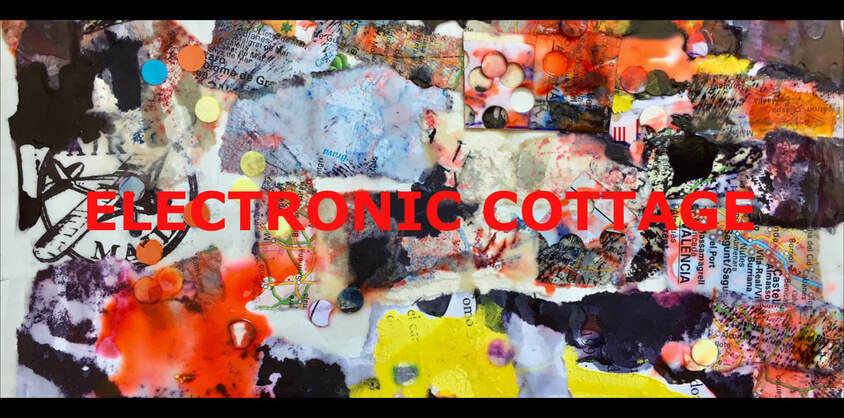
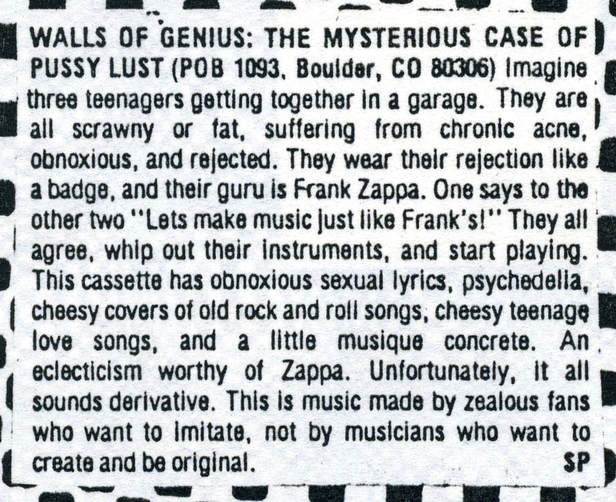
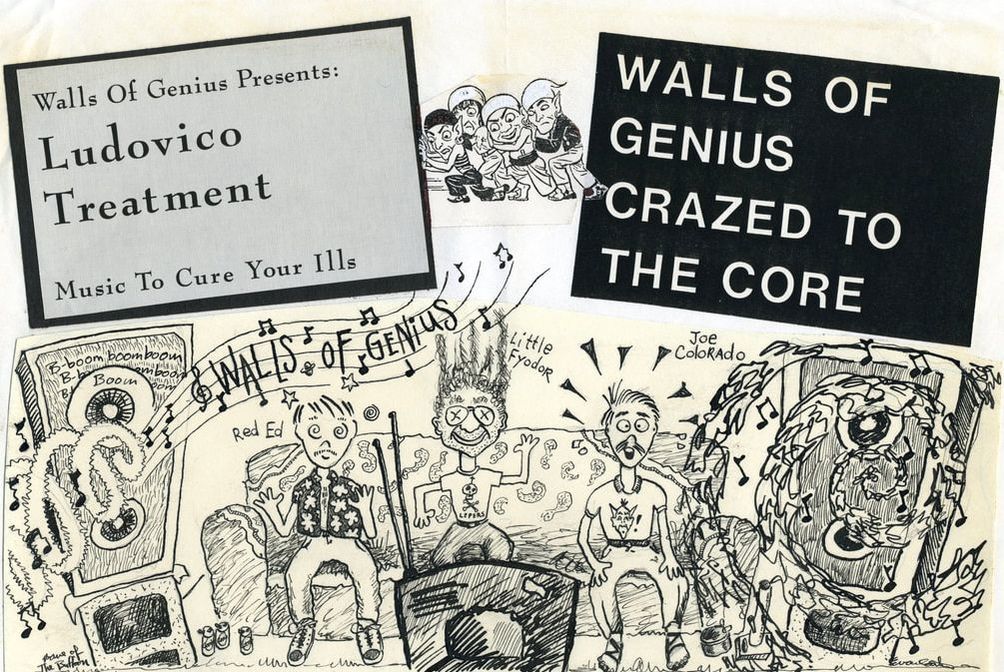
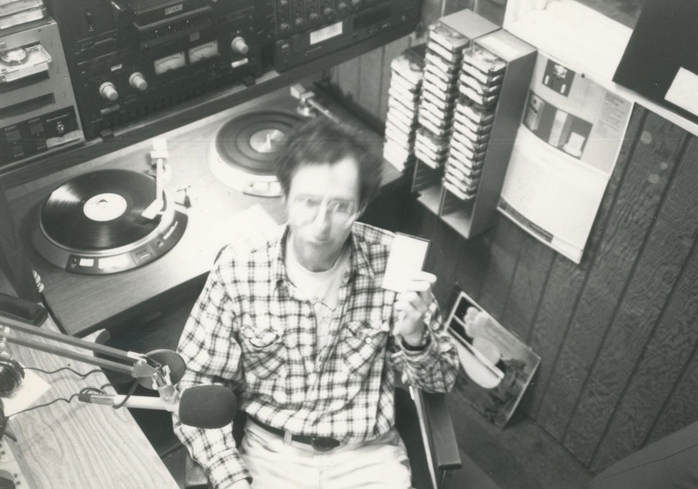
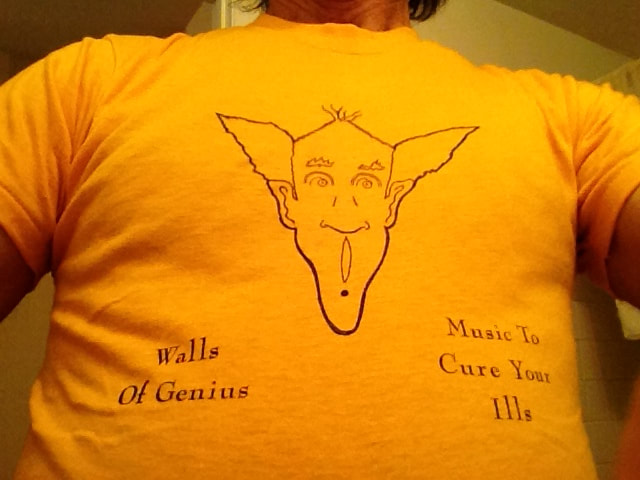
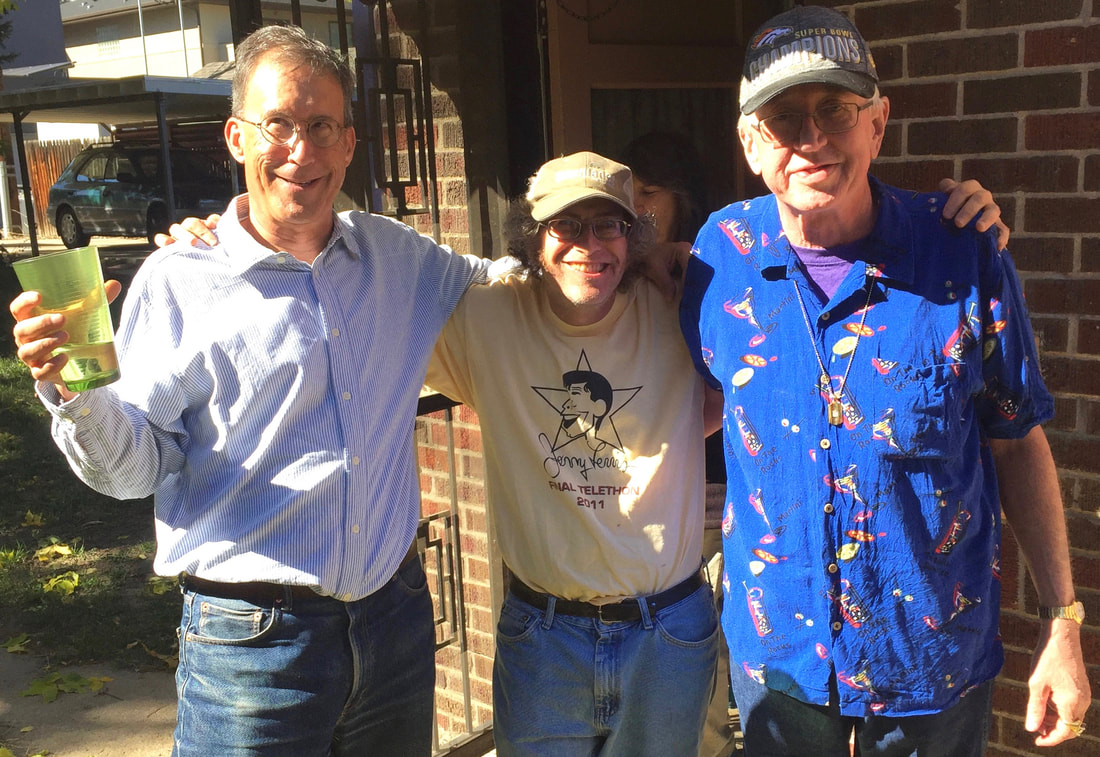
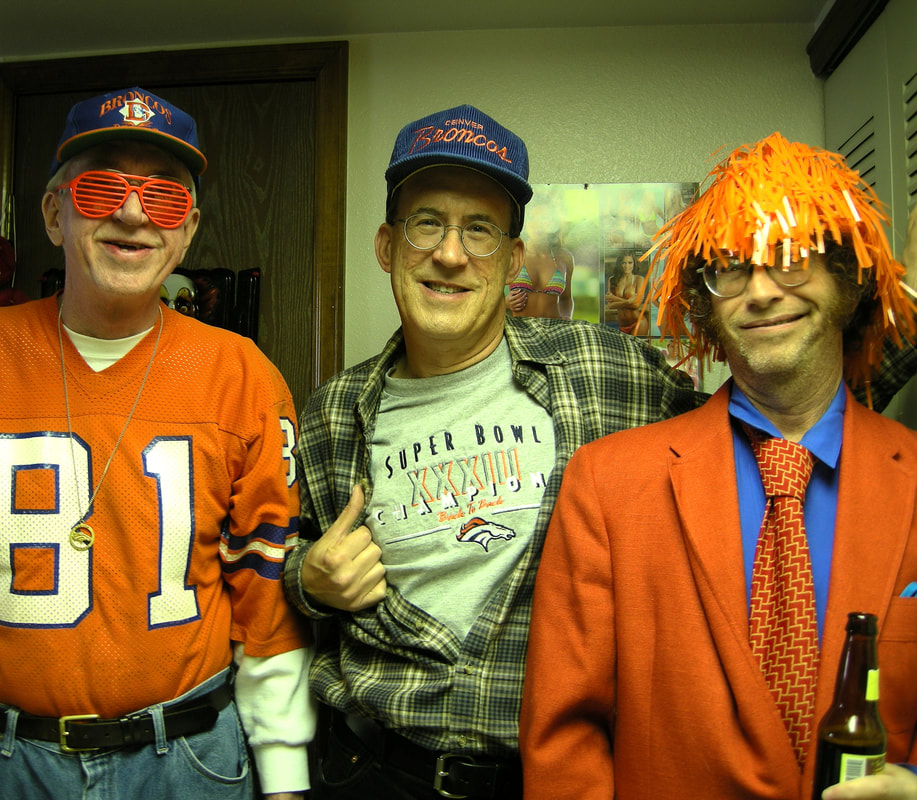
 RSS Feed
RSS Feed